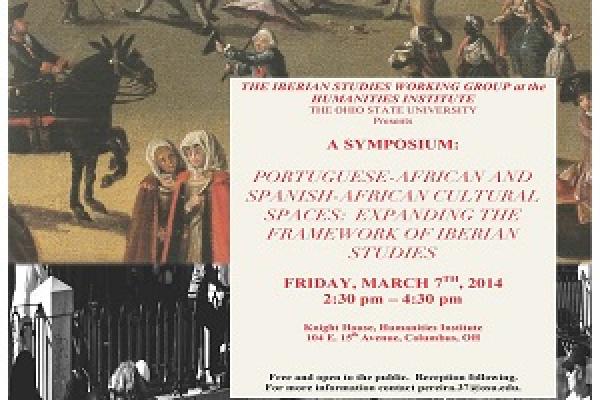
Pedro Pereira, Spanish and Portuguese, The Ohio State University:"'The Luso' and 'the African' in Iberian Studies"
Instead of dwelling on the legacy of Hipanism, one other approach to Iberian Studies can be to interrogate the legacy of colonialism and its aftermath in the literary and cultural production of different Iberian spaces. In this presentation I will briefly look at the evolution of Portuguese discourse on Africa since the end of classical colonialism, as well as at the impact of luso-African cultural production in contemporary, post-imperial and post-revolutionary Portugal. We will see that despite the fact that African Studies is well established as a field in Portugal, mostly in the Social Sciences, the visibPedro Pereiraility of cultural productions by and/or about Portuguese citizens of African descent remains confined to the margins of the cultural system, and that mainstream Portuguese literature still ignores a fundamental constituency within Portuguese society. I hope my presentation will elicit comparisons with the Spanish reality, as well as a discussion about the roles of Africa and Africans in contemporary Iberian cultures.
Dosinda Alvite, Spanish, Denison University: “Squaring the Triangle? Facing Africa's Legacy in Iberian Studies"
In the spirit of Américo Castro’s historical revisionism, I propose that African peoples and traditions, and their representation in literature and cultural works produced in Iberia need to be added to the intellectual horizon of Iberian Studies. Recently the scope has been broadened to not only incorporate the national literatures of Basque country, Galicia and Catalonia, but also contact zones have been established with Latin American studies, Latinos in the USA, European studies and Mediterranean studies. One regularly forgotten but central constituency is AfroHispanic studies. Following the model of the Golden Age period in which the figure of the “black” was a constant, although marginalized and subordinated presence in Iberian cultures and literature, Africa’s rich legacy in Spanish has not yet been incorporated to the definition of the field in current times. In this presentation I will offer a brief historical overview of the importance of Africa to an Iberian Studies framework working from an interdisciplinary approach.
Eugenia Romero, Spanish and Portuguese, The Ohio State University: “Iberian Discourses of Displacent: Representation of Immigrants in Cuentos de las dos orillas”
In her book Questions of Travel (1996), Caren Kaplan points out that the “stories” told by ethnographers, expatriates, travel writers and tourists privilege an aesthetic production in which distance and separation acquire a central or prominent space. At the same time, the displaced (immigrants, refugees, homeless, etc.) are rarely recognized as producers of their own discourses but rather as symbols of the experience. In the case of Spain, the stories of African immigrants have usually been relegated to second-class status, despite the large number who arrive illegally everyday. I argue that “Diario de un emigrante clandestino” by Rachid Nini and “El molino de viento” by Rosa Regás, from the collection Cuentos de las dos orillas (2001), attempt to vindicate the place of immigrants in Spain’s every day life, not only by displacing the traditional way immigration has been seen by Spaniards, but also by giving a critical voice to immigrants themselves. Both stories make use of a wider Iberian narrative space that explores Spanish-African connections around immigration, and bring a displaced discourse to the forefront of literary and cultural productions.
Sponsored by the Iberian Studies Working Group.
Free and open to the public. Reception following. For more information contact Rebecca Haidt.
